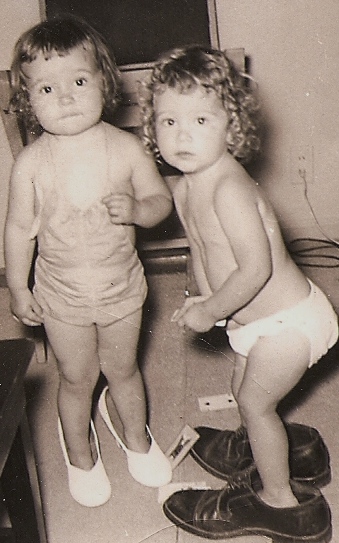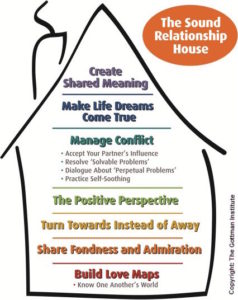
Guidelines for Kindness When Posting
We seldom deliberately present a bad face on social media. Selfie stick in hand, we depict ourselves smiling before an elaborate, expensive meal, in front of a landmark in an exotic land, or simply celebrating with friends (which all can see, including those not fortunate enough to be present in those moments). Accumulating ubiquitous likes and thumbs-up is gratifying in the way that cotton candy is: briefly sweet, but fading quickly as the posts scroll by. Posts may have sad news; they may be angry, ranting, or commented on by haters, but in constructing a public version of ourselves, we promote something: a lifestyle, an idea, or an image.
First generation Face bookers–the early adopters—now in their twenties, have mostly abandoned it for Twitter and Instagram where they look for news in their areas of interest. Their parents, on the other hand, who may have started a Facebook page as a means to snoop on their kids, (and friends of their kids)—are more active than ever, but for themselves now, posting about their kid’s achievements. That’s understandable. The need to know that others care about us is normal. Seeking attention in the right way, at the right time, is healthy: An actor needs interaction with her audience; a poet wants to hear audible sighs when reading their work. In conversation, we seek reciprocity. I speak while someone listens, then I listen attentively in turn. I can tell you now, having published a blog, that I want to know that people read my posts, and it is the best when someone comments.
No one wants to be a Debbie Downer to their friends, and no one wants to read the sad, drab, boring parts of life. So what’s wrong with shaping a good-looking, successful persona for social media? One answer: it’s depressing. The theory of social comparison suggests that we evaluate and define ourselves in relation to others, and Facebook is no exception. But if we’re always comparing our lives, which we know to be full of difficulty (unrealized dreams, illness, money problems, strained relationships, etc.) to the carefully curated, only-the-highlights lives of others, it’s easy to feel envious and depressed at how you don’t measure up.
More than that, when we’re obsessing over social media, we’re not paying attention to our own present moment. Instead, we take a mini-time travel to a future moment, imagining other people witnessing our experience, or become lost in memories, wishes, and comparisons. We become exhibitionists and voyeurs, which detaches us from other people rather than bringing us closer together.
Chao-pien was a Chinese official of the Sung dynasty and lay disciple to a Zen master. He summarized a spiritual experience in a four-line poem:
Devoid of thought, I sat quietly by the desk in my official room,
With my fountain-mind undisturbed, as serene as water;
A sudden crash of thunder, the mind doors burst open,
And lo, there sits the old man in all his homeliness.
T. Suzuki (Essays in Zen Buddhism, Second Series (1953; reprint, London: Rider, 1970)
Thomas Merton unpacks this metaphor in his book The Inner Experience:
Suddenly there is a clap of thunder and the “doors” of the inner consciousness fly open. The clap of thunder is just startling enough to create a sudden awareness, a self-realization in which the false, exterior self is caught in all its naked nothingness and immediately dispelled as an illusion. Not only does it vanish, but it is seen never to have been there at all—a pure fiction, a mere shadow of passionate attachment and of self-deception. Instead, the real self stands revealed in all his reality.
A serene mind, devoid of the constant stream of media, allows us to see ourselves as we are: homely and human. The irony for those of us hoping to portray perfection is that it takes seeing our homeliness—our unpolished, unedited life—to begin glimpsing our wholeness.
When we don’t see our homeliness because we are busily posting all the good stuff, we evade the difficult yet real feelings we have, and we evade real emotional contact with ourselves and others. Our rejected, unacknowledged feelings go underground—and will pop up again as symptoms of unease. In this way, social media becomes a defense mechanism, like denial or projection.
The vivid starkness of D. T. Suzuki ‘s excerpt speaks to what we must eventually encounter when we sit alone without our devices. We see the door burst open to our humanness, in all its homeliness and ordinariness. We are fine as we are, warts and all.
Over the years I have seen clients who obsessively look at social media; some create a complete alter ego. This keeps them from true and honest relationships, even with themselves. For tips on putting down the smartphone, try this link.
Consider the following these guidelines for kindness when posting.
- Be considerate of others when posting photos of exclusive activities, amazing holidays, or expensive vacations—especially ones your friends can’t afford, weren’t invited to, or couldn’t attend.
- Don’t overshare—no one wants to see your every activity, meal, and outfit.
- Check your privilege. Make sure you are not being insensitive in your posting.
- Be genuine; avoid arrogance.
- Make posts that are about other people and issues, not just yourself.
- Try taking a break from posting.
- People want to see your artwork, your successes, and accomplishments, but don’t upload every single thing.

 A great marriage needs a strong foundation. Remember the story of the three little pigs? The first little pig built his house of straw and the second made his house with wood. The third pig built his house of brick while the first two pigs played, taunting him for working so hard.
A great marriage needs a strong foundation. Remember the story of the three little pigs? The first little pig built his house of straw and the second made his house with wood. The third pig built his house of brick while the first two pigs played, taunting him for working so hard.



